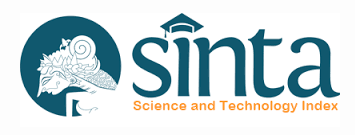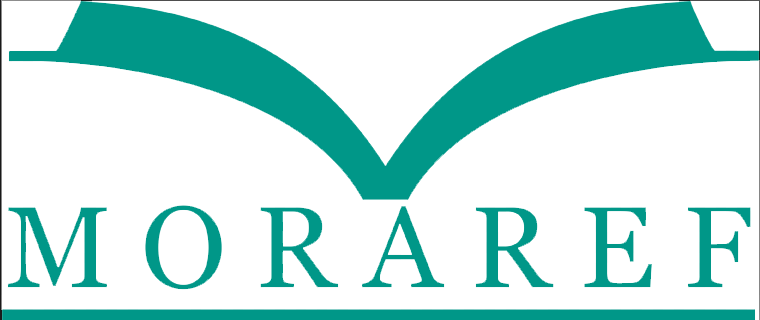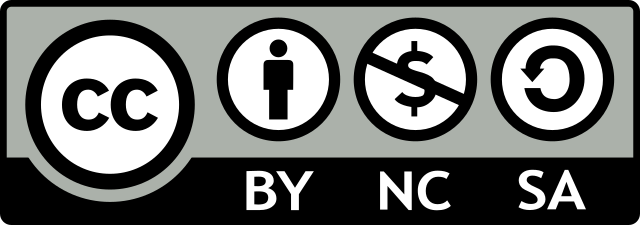Pemetaan Bibliometrik dengan VOSviewer terhadap Pengetahuan Lokal Mitigasi Bencana
Abstract
Bibliometric mapping can describe variations in information regarding local knowledge in an effort to reduce the impact of disasters. Although there has been much discussion about bibliometric mapping, research on local knowledge in the context of disaster mitigation is still very limited. Research methods. The bibliometric method with a quantitative approach is applied through the Scopus database with a range of 2019-2023 and VOSviewer visualization. The mapping technique is carried out using co-citation analysis and network and density visualization. Analysis data. There were 98 documents that cited two studies simultaneously. The most cited research discusses local knowledge for disaster preparedness and the integration of indigenous knowledge with science for disaster risk reduction. Results and Discussion. The research relationship pattern resulted in 8 clusters with different topic focuses, ranging from the integration of indigenous knowledge and scientific knowledge in disaster resilience, disaster risk management, to community participation.
Downloads
References
Academy of Disaster Reduction and Emergency Management, & Education, M. of E. M. (2021). Global Natural Disaster Assessment Report 2021. UN Annual Report, (October), 1–80. Retrieved from https://reliefweb.int/report/world/2021-global-natural-disaster-assessment-report
Erwina, W., & Yulianti. (2016). The Application of Indigenous Knowledge in Information Literacy Model in Higher Education: A Case of Application of Indigenous Knowledge as One of Information Science Studies. International Conference on Science Mapping and the Development of Science, (April 2016), 291–299. Library and Information Management Graduate School, Gadjah Mada University.
Fatmala, F. D. A., & Sopiah. (2023). A systematic literature review and bibliometric analysis of transactional leadership. Jurnal Penelitian Administrasi Publik, 3(01), 104–117. Retrieved from https://aksiologi.org/index.php/praja/article/view/624
Hartman, S. (2018). Resilient tourism destinations? Governance implications of bringing theories of resilience and adaptive capacity to tourism practice. Destination Resilience, (February), 66–76. https://doi.org/10.4324/9780203701904-5
Masni, M. (2020). A Bibliometric Study on Students’ Theses at the Department of Elementary School Teacher Education, Universitas Negeri Makassar. Literatify : Trends in Library Developments, 1(1), 27–32. https://doi.org/10.24252/literatify.v1i1.13159
Mechler, R. (2016). Reviewing estimates of the economic efficiency of disaster risk management: opportunities and limitations of using risk-based cost–benefit analysis. Natural Hazards, 81(3), 2121–2147. https://doi.org/10.1007/s11069-016-2170-y
Nandiyanto, A. B. D., Ragadhita, R., Al Husaeni, D. N., & Nugraha, W. C. (2023). Research trend on the use of mercury in gold mining: Literature review and bibliometric analysis. Moroccan Journal of Chemistry, 11(1), 1–19. https://doi.org/10.48317/IMIST.PRSM/morjchem-v%vi%i.36576
Niekerk, D. Van, Nemakonde, L. D., Kruger, L., & Genade, K. (2017). Community-Based Disaster Risk Management. (November). https://doi.org/10.1007/978-3-319-63254-4
Rahayu, S., & Saleh, A. R. (2017). Studi Bibliometrik dan Sebaran Topik Penelitian pada Jurnal Hayati Terbitan 2012-2016. Pustakaloka, 9(2), 201. https://doi.org/10.21154/pustakaloka.v9i2.1092
Sugiyono. (2021). Metode Penelitian Kuantitatif Kualitatif dan R&D. Bandung: Alfabeta.
Sularso, Octavianus, & Suryono. (2021). Mitigasi risiko bencana banjir di Manado. Jurnal Spasial, 8(2), 267–274.
United Nations. (2015). Sendai Framework for Disaster Risk Reduction 2015 - 203.
United Nations Disaster Risk Reduction. (2022). 2022 Disasters in Numbers. EM-DAT | The International Disasters Database, 8. Retrieved from https://www.emdat.be/
United Nations Office for Disaster Risk Reduction. (2022). USING TRADITIONAL KNOWLEDGES FOR DISASTER RISK REDUCTION.
Zupic, I., & Čater, T. (2015). Bibliometric Methods in Management and Organization. Organizational Research Methods, 18(3), 429–472. https://doi.org/10.1177/1094428114562629
Copyright (c) 2024 Alifa Ufaira Yusuf, Wina Erwina, Yunus Winoto

This work is licensed under a Creative Commons Attribution-NonCommercial-ShareAlike 4.0 International License.
By submitting your manuscript to our journal, you are following Copyright and License








